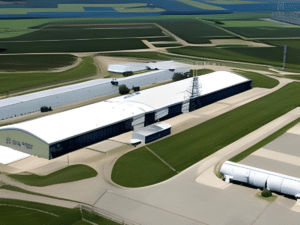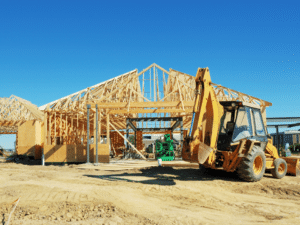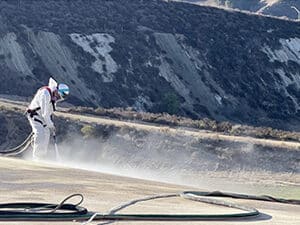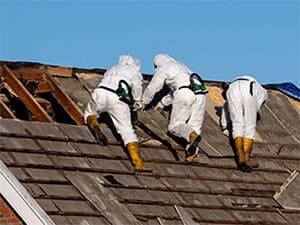Developers & Building Managers Find New Opportunities in LEED Certification

Developers, commercial builders, and property managers are turning to LEED certification for a wide array of benefits that include a reduced carbon footprint, energy savings and customer and employee health.
LEED Certification for Environmental Sustainability and Healthier People
LEED® (Leadership in Energy and Environmental Design) certification is an essential tool for many building owners and the construction industry, providing a framework for environmentally sustainable building practices.
Used in more than 167 countries to promote strategies for addressing climate change and the health of building occupants, LEED certification has also become an incentive for both prospective tenants and employees.
Environmentally Safe and Sustainable Buildings Provide an Array of Benefits
Developers, building owners, and managers can reap significant savings with energy-efficient facilities, according to the U.S. Green Building Council (USGBG), which developed the LEED standards.
LEED certification uses a rating system to promote and recognize building design, construction, and operation practices that reduce energy and water use, utilize sustainable site development processes, and maintain a healthy indoor environment.
Ratings are concentrated in seven areas, with participants earning credits based on their projects’ performance related to:
- Sustainable Sites
- Water Efficiency
- Energy and Atmosphere
- Materials and Resources
- Indoor Environmental Quality
- Innovation in Design Process
- Regional Priority
Among other practices promoted under LEED certification, the use of eco-friendly building materials in commercial construction leads to lower fossil fuel consumption and less waste. Materials such as recycled steel and other building materials, new types of concrete, and insulated concrete forms (ICFs) are more energy-efficient and longer-lasting.
To achieve LEED certification, a construction project can earn points by adhering to requirements for energy and water use, building materials, waste, transportation, carbon impact, health, indoor air quality, and building design.
The benefits of LEED certification go beyond environmental sustainability, however.
Heating and air-conditioning costs are greatly reduced, indoor air quality and lighting are improved, and tenants and employees are healthier, happier and more productive, among other benefits, according to the results of a 2018 USGBC survey.
Employees and tenants who were surveyed reported being more productive in LEED-certified spaces, with 81% agreeing that enhanced air quality improves health and comfort. That’s a marketing and recruiting edge for businesses that can use LEED certification as evidence of their commitment to environmental sustainability and the health and safety of their patrons and employees.
The Importance of Indoor Air Quality
Indoor air quality improvement alone provides significant benefits to the health and productivity of building occupants. The improved indoor air quality that LEED-certified buildings create can reduce absenteeism for conditions that include asthma, respiratory allergies, depression, and stress.
“The importance of indoor air quality has never been higher. Not only does it protect the safety of employees against potential toxins and pathogens like the COVID-19 virus, the assessments evaluate general indoor air quality parameters in office spaces as well. A program of regular indoor air quality assessment also promotes well-being and comfort within the work environment.” – Omega President and Project Director Steve Rosas
It’s a fact that has not gone unnoticed by building managers. The indoor air quality of commercial, educational, retail, and other public buildings came under heightened scrutiny as the result of the pandemic, with a growing number of property managers now scheduling regular assessments to ensure the continued safety of indoor air.
“The importance of indoor air quality has never been higher,” says Omega President and Project Director Steve Rosas. “Not only does it protect the safety of employees against potential toxins and pathogens like the COVID-19 virus, but the assessments also evaluate general indoor air quality parameters in office spaces as well. A program of regular indoor air quality assessment also promotes well-being and comfort within the work environment.”
For hotel, restaurant and retail establishments, indoor air quality assessment has become an important safeguard for customers warily returning to post-pandemic activities.
For best results, developers and building owners partner with experienced environmental consultants to ensure that LEED certification and IAQ requirements are met and maintained.
‘Green’ Buildings and Healthy IAQ with the Right Environmental Partner
Omega offers 24/7 environmental consulting, assessment and remediation services for clients seeking LEED certification and environmental compliance for construction and renovation, as well as the ongoing safety of commercial and industrial buildings and workplaces.
With a team of experienced toxicologists, microbiologists, certified industrial hygienists, and more, we oversee environmental compliance and provide thorough and effective environmental assessments that include Indoor Air Quality (IAQ) assessments for lead, asbestos, microbial contamination, sewer gas, mold and moisture, volatile organic compounds (VOCs) and more.










